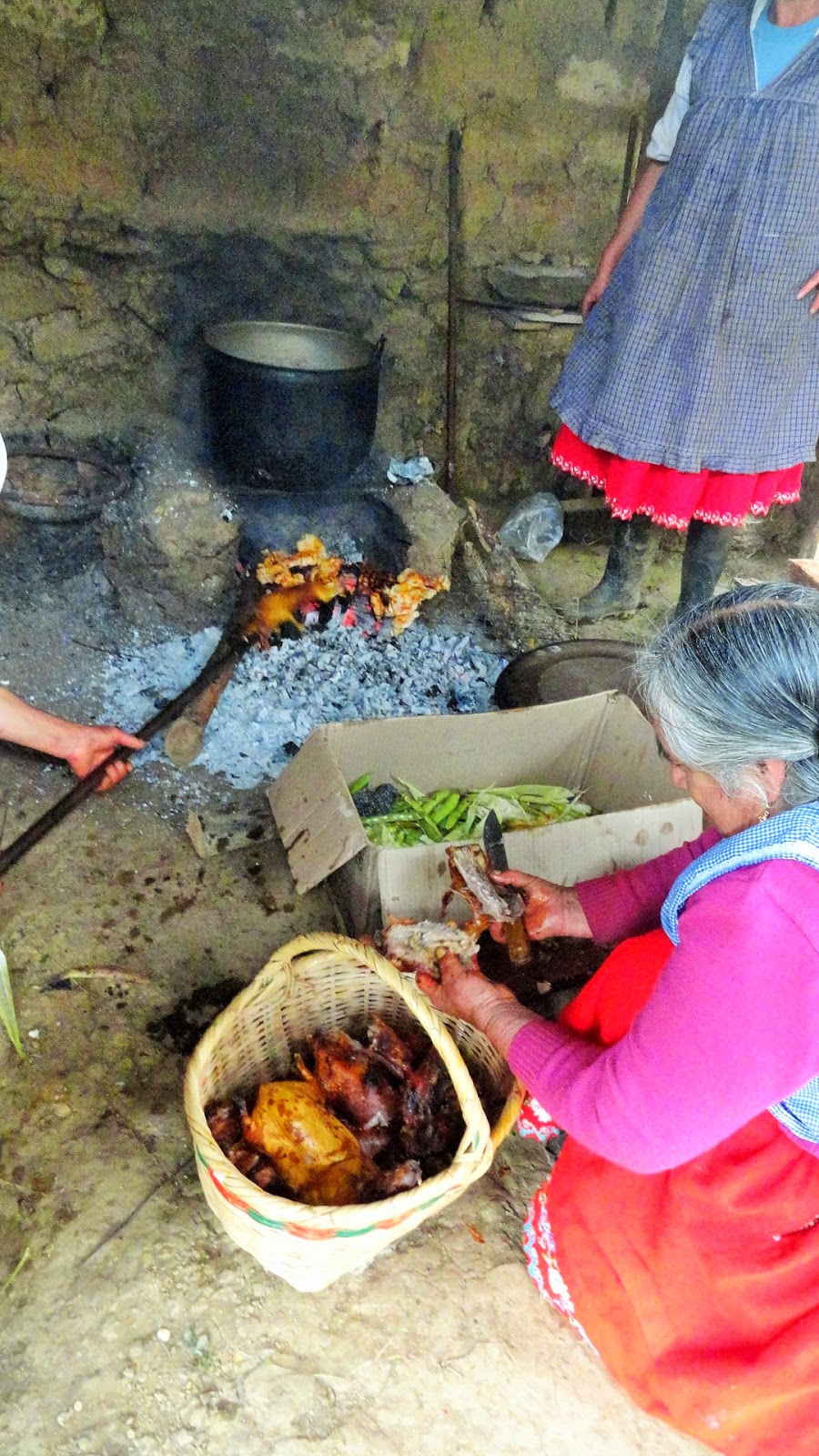While my fellow interns and I are trying to
stay as hygienic as possible, el campo
does not make it easy for us. From mud to animal feces, my poor hiking boots
trek through some unsightly things everyday here in Pulingui… but, while learning
to deal with that dirt and stench I have also learned the art of the bucket
shower (because the animals smell bad enough and I do not need to contribute to
that).
As there is no indoor toilet, there is of
course no hot water or shower, so every few days my host mother brings out her
largest soup pot and boils me water. Now you may be thinking “every few
days...?” or you may be asking “why is she never showering…?” well contrary to
your judgments, I am currently the cleanest girl in Pulingui (meaning I have
showered the most in the past two weeks). While this may be shocking news, it
is only because most of the people that live in el campo shower at most once a week. Somehow though…no one smells
bad…
This hygiene routine here in el campo has had me quite perplexed: how
can they shower less than I do and I still smell worse after a few days…? Well,
after some further investigation, this is either due to the 20 layers that each
person wears to stay warm, or the cold which doesn’t even permit them to sweat.
(I know this blog is a lot grosser than you expected, but after living here for
a week and a half I have gotten extremely used to grossness…)
So back to bucket showers… In this 30
degree weather the 10 minutes that I can spread my shower out for are so
heavenly (even though my first shower was in the pitch black and my last one I
was surrounded by spiders). I also forgot my sandals in Cuenca, so to avoid
further diseases I have created Ziploc bag shower shoes (I think this is my
entrepreneurial side coming out). But besides all the things that have gone
wrong, I have mastered the bucket shower, and am offering tips for anyone who
needs them.
Now that I actually enjoy showers, let me
tell you about something I don’t like… FLEAS! I guess being clean and hygienic
does not exempt you from getting a bed full of fleas…because that is the
wonderful way my bed greeted me on Tuesday night. Needing to get up at 3:30 am
for work, I thought it would be responsible to go to bed early and get some
sleep, but instead my night was filled with biting and scratching (the fleas
were biting and I was scratching… just to clarify). Now before you judge me for
the second time in this post, let me explain.
In Pulingui (and all of Ecuador) there are
more stray dogs than there are people. While most people claim that the dogs
are pets, none of the dogs are taken care of, and therefore have diseases and
of course, fleas. After being warned about this during our first week in
Ecuador, I was determined to avoid these dogs at all costs… but, while some of
my fellow interns were enamored by the “cuteness” of the dogs and could not
keep their hands off of the dogs the fleas decided to find refuge on their
clothing and then later mine… So that is how you can be clean and careful and
still end up miserable with fleas…
Oh the joys of living in el campo…
Lots of love from Ecuador,
Jen (who doesn’t have fleas anymore)


































.JPG)
.JPG)
.JPG)
.JPG)
.JPG)